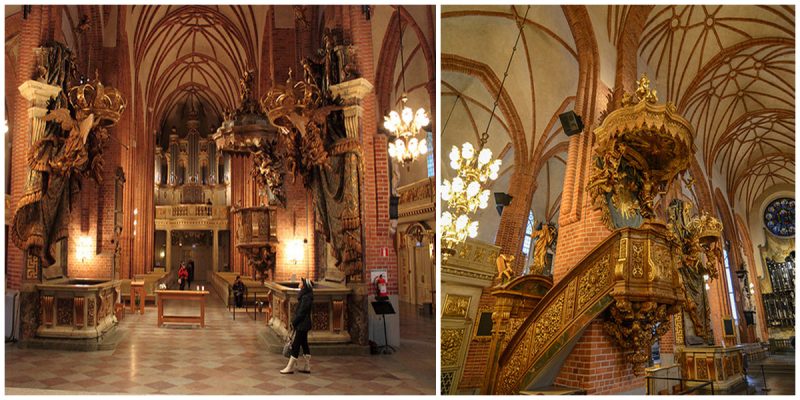Sankt Nikolai kyrka (Church of St. Nicholas), most commonly known as Storkyrkan (The Great Church) and Stockholms domkyrka (Stockholm Cathedral), is the oldest church in Gamla stan, the old town in central Stockholm, Sweden.
In English, it is often referred to as The Stockholm Cathedral.
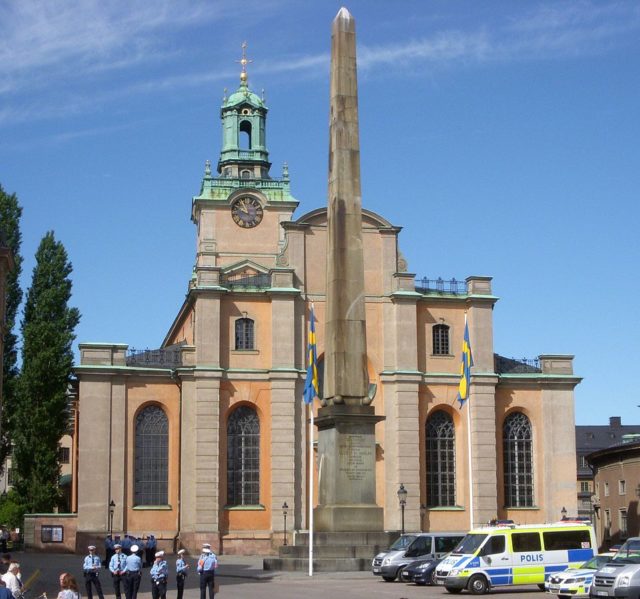
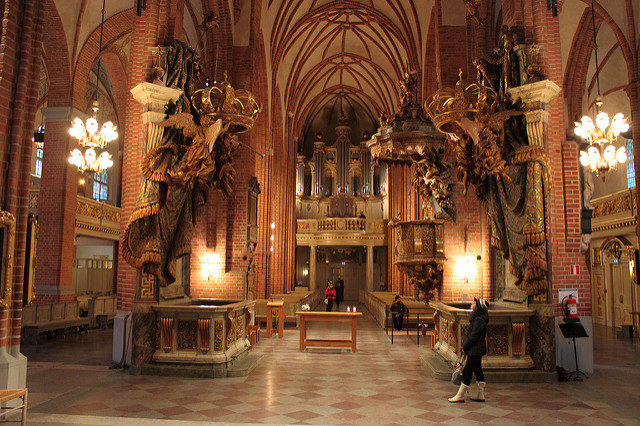
The exterior and interior of the church are a mix of Gothic, Baroque, and Medieval styles, reflecting the expansion of the church since the 1200’s.
It has been expanded and renovated many times but has been around for about as long as Stockholm, being first mentioned in texts in 1279 (the city was first mentioned in 1252) and according to tradition was originally built by Birger Jarl, the founder of the city itself.
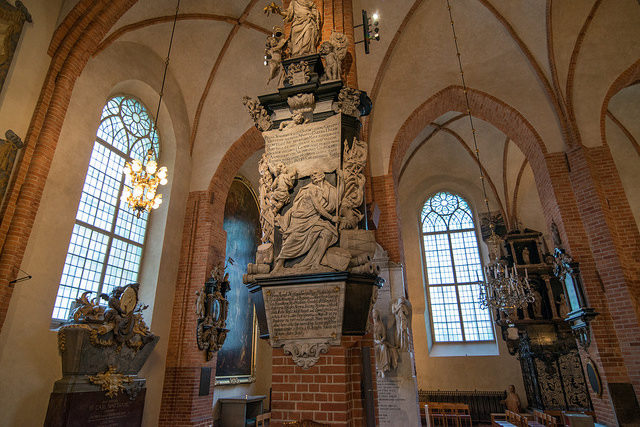
The interior was meant to impress, and it does. The church contains lots of magnificent artworks and furniture that impresses both through artistic quality and through its sheer size.
The main altar or “The Silver Altar” is a wooden triptych with an ebony veneer with sculptured reliefs in silver in ascending order of the Last Supper on the predella.
The rose window above and behind the Silver Altar was made in Paris in the 1850s, the first of a series of modern stained windows in the church contributed by various donors.
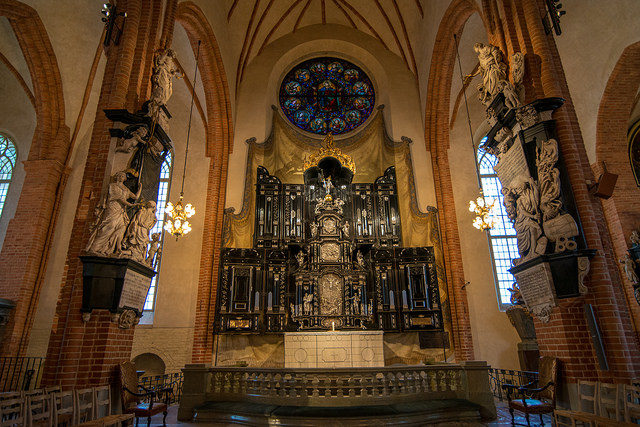
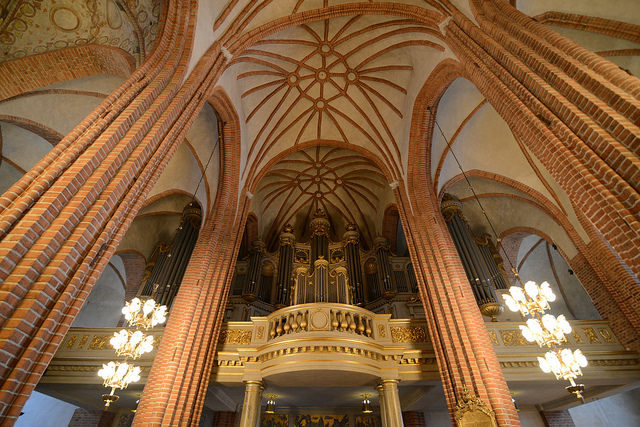
The monumental pulpit is the work of Burchard Precht in 1698-1702 and is in a French Baroque style.
It became the model for a number of other large pulpits in Sweden.
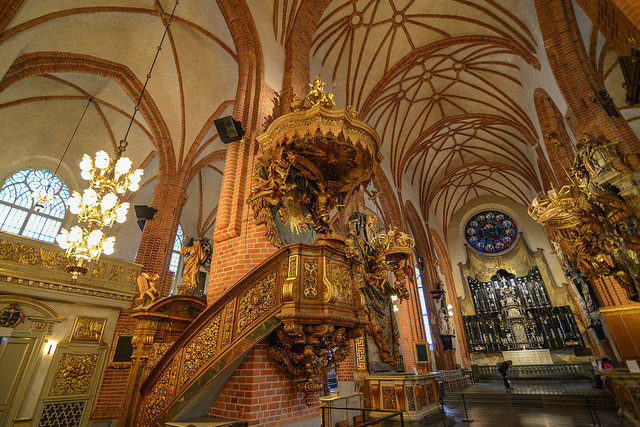
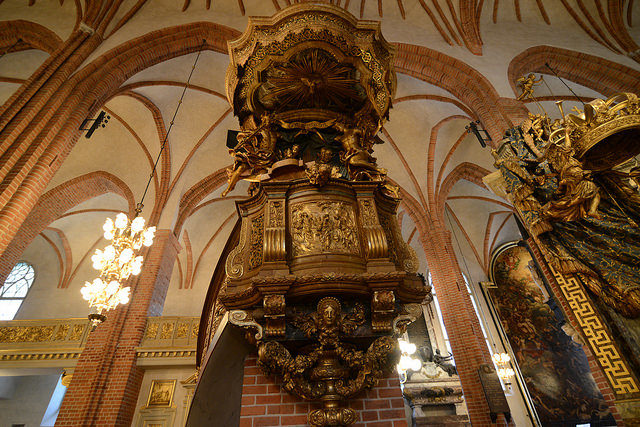
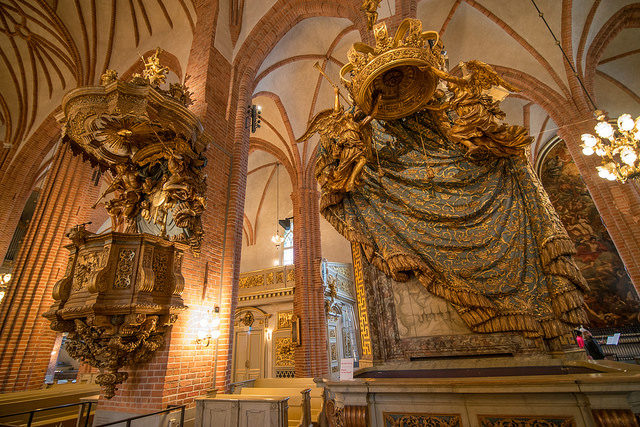
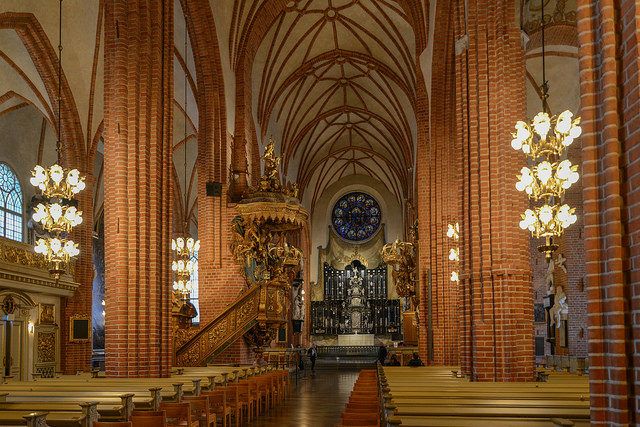
One of the main attractions in the church is the wooden statue of St George slaying the dragon.
From the late 1400’s, it commemorates the Battle of Brunkeberg when Sweden (St George) defeated the invading Danes (the dragon).
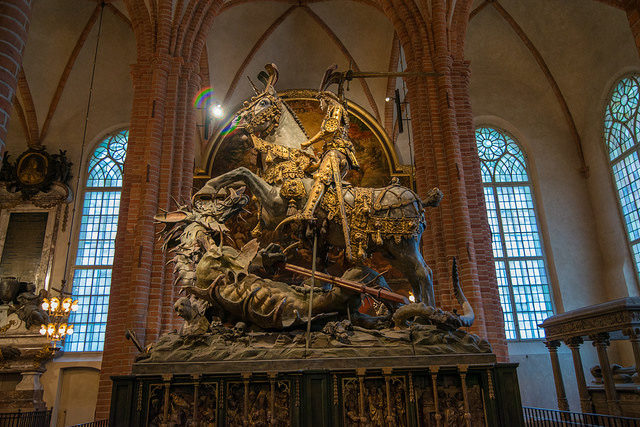
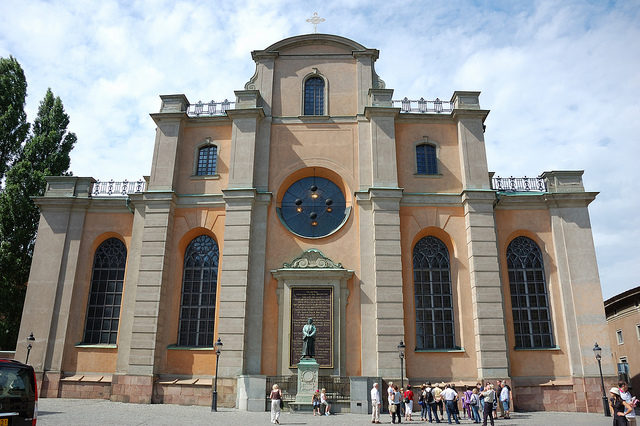
Because of its convenient size and its proximity to the earlier royal castle and the present royal palace, it has frequently been the site of major events in Swedish history, such as coronations, royal wedding, and royal funerals.
The last Swedish king to be crowned here was Oscar II in 1873. Crown Princess Victoria, the oldest daughter of King Carl XVI Gustaf and Queen Silvia, was married to Daniel Westling on 19 June 2010 at the Storkyrkan, the same date on which her parents were also married in Storkyrkan in 1976.
